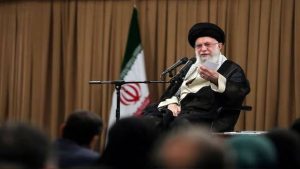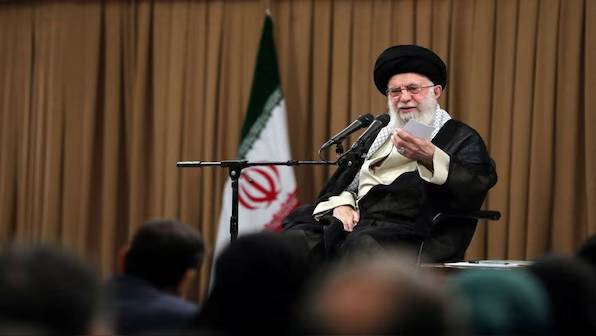India rejects Iran’s comments
New Delhi has firmly rejected remarks made by Iran’s Supreme Leader, Ayatollah Ali Khamenei, regarding Indian Muslims, labeling them as “misinformed and unacceptable.” The comments were made by the Iranian leader in a post on X (formerly Twitter) during the celebration of the birth anniversary of Prophet Mohammed, where he addressed the hardships faced by Muslims in various regions, including India, Gaza, and Myanmar.
India’s Ministry of External Affairs (MEA) issued a strong statement condemning Khamenei’s remarks, advising countries to reflect on their own treatment of minorities before commenting on others. “We strongly deplore the comments made regarding minorities in India by the Supreme Leader of Iran. These are misinformed and unacceptable,” the statement read. The ministry emphasized that external parties should review their own human rights records before making such observations.
Ayatollah Khamenei’s Statement
In his post on X, Ayatollah Khamenei highlighted the need for solidarity within the Muslim community (the Islamic Ummah), urging Muslims not to be indifferent to the struggles of their fellow believers. “We cannot consider ourselves to be Muslims if we are oblivious to the suffering that a Muslim is enduring in #Myanmar, #Gaza, #India, or any other place,” Khamenei wrote.
His comments come at a time of heightened tensions between Iran and Israel, which has put New Delhi in a sensitive position due to its strategic relationships with both nations.

India Rejects Iran’s Supreme Leader’s Comments on Minorities
India’s Balancing Act Between Iran and Israel
India maintains close ties with both Iran and Israel, especially in areas of energy, defense, and security. Iran has historically been a major supplier of crude oil to India, accounting for a significant portion of the country’s energy needs. The Chabahar port project, which New Delhi views as a critical trade route connecting India to Afghanistan and Central Asia, is a key component of India-Iran relations.
At the same time, India has cultivated a robust defense and strategic partnership with Israel, which has evolved over the years. Israel’s technology, security cooperation, and arms trade with India are vital to the bilateral relationship. Both countries have faced common threats, notably in the form of terrorism, as demonstrated by the 26/11 Mumbai attacks, where Israeli citizens were also targeted.
This delicate balance was tested following the October 7 terrorist attacks by Hamas on Israel. India expressed support for Israel in the early hours after the attack, signaling its strong stance against terrorism while navigating its diplomatic relations with Iran.
Broader Implications of Khamenei’s Remarks
Khamenei’s remarks have not only highlighted the internal struggles within the Muslim world but have also drawn attention to India’s Muslim minority. However, the Indian government has consistently rejected external criticisms regarding the treatment of minorities in the country, asserting that it is a domestic matter and that India’s pluralistic society is one of its strengths.
The Iran-Israel conflict and related tensions in the Middle East have placed additional diplomatic pressure on New Delhi, given India’s reliance on West Asia for energy supplies and its growing strategic ties with Israel. As a significant player in the region, India will likely continue to balance these relationships carefully while asserting its stance on external criticism.
India’s rejection of Ayatollah Khamenei’s comments underscores its strong position against external interference in its internal affairs. While New Delhi navigates its complex relationships with both Iran and Israel, the broader focus remains on maintaining its strategic interests in West Asia while addressing concerns related to terrorism and security.


